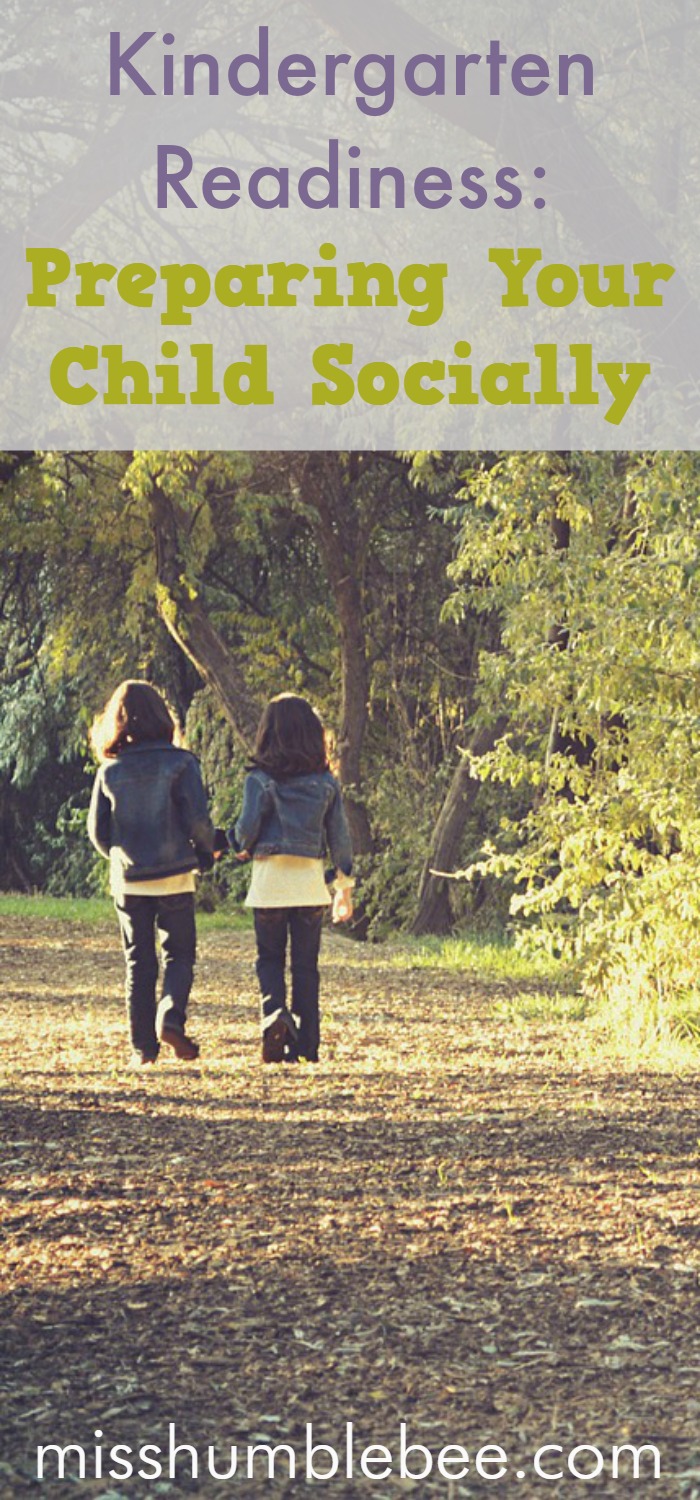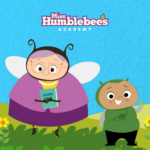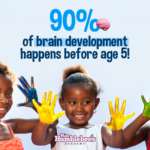When you think of kindergarten readiness, does your mind immediately jump to academics?
“My child knows the alphabet and can count to 100. He’s ready for school!”
As important as academic readiness is for a child entering kindergarten, it’s not the only thing that matters, nor is it the only thing that should be taken into account when deciding whether or not your child is ready to begin school.
Last week on the blog we shared the academic skills your child needs to be kindergarten ready, as well as some resources to work on those skills. While the academic piece is certainly an important one, there are other areas that need to be considered.
Kindergarten Readiness: Preparing Your Child Socially
This week we’ll discuss the social skills your child needs before school begins. We will highlight the major skills, as well as resources to help improve those skills. If you are interested in receiving our full Kindergarten Readiness Checklist, you can access it here.
Please note that every child develops at his own pace. Your child may excel in some areas and have a harder time in others, but not having mastery of every single skill does not necessarily mean he is not ready to start kindergarten. Take a big picture view when determining your child’s readiness.
Kindergarten Readiness: Preparing Your Child Socially
Some of the social skills your child will need to be prepared for kindergarten are:
Ability to separate from parent or caregiver
Although every child has moments of uncertainty when separating from a parent, if your child never wants to leave your side, he may not be ready to transition to kindergarten. Many children start the school year with morning tears at drop-off, but this usually subsides after they have become used to the new routine and new faces.
Of course, it’s hard to predict how your children will react before it actually happens (I was sure my second oldest would have a tough time, but he settled right in on the first day!), but you can think about how your child does in other situations, such as when you leave her with a babysitter, at soccer practice, or Sunday school, and get a good idea of how she might react to starting kindergarten.
If you think your child will have a hard time separating from you, the following resources can help. Though most of them give ideas for when you’re actively in the situation, they still can help you prepare for what might happen and help you work through how you want to handle it. Being prepared is half the battle!
Ten Ways to Teach Kids Independence :: My Mommy Style
Preschooler Anxiety- Advice from Teachers and Parents :: Rainy Day Mum
A Simple Solution to End Separation Anxiety :: Mama in the Now
Starting School Separation Anxiety- Coping With Tears :: The Mud Kitchen
Is your child ready for kindergarten? Find out with our free comprehensive Kindergarten Readiness Checklist.
Ability to cooperate with adults
How does your child get along with the adults in his life? Can he follow simple directions? Easily transition from one activity to another? Ask for help when he needs it?
In kindergarten he will need all of these skills as he learns to be part of a classroom that likely has many more children than adults. To make the most of their time together, the teacher will need students to be able to follow her directions as she works with them throughout the day.
Classroom rules and expectations are usually the focus during the first few weeks of school and no one expects a child to be perfectly compliant all the time, but if these are areas of difficulty for your child, you may want to work on them before school begins.
If you think there may be a more serious reason that your child can’t follow directions, this infographic may help you start to narrow down the underlying cause:
Four Possible Reasons Your Child Doesn’t Follow Directions :: Understood.org
Otherwise, the following resources can help your child improve her ability to follow directions and transition from one activity to another.
Six Following Directions Games for Kids :: Coffee Cups and Crayons
How to Get Students to Follow Directions the First Time :: The Cornerstone (although written for teachers, there are some really great tips here!)
Transitions for Young Children :: The Kinder Corner (also written with the classroom in mind, but many of these ideas would also work at home)
Ability to get along/take turns/share with peers
School is the great learning ground for social skills, many of which will continue to develop over the coming years, but basic skills are necessary before school begins.
It is likely that your child already interacts with other children, at least on a semi-regular basis, whether it be through daycare, preschool, with siblings, or a number of other activities. These are all opportunities to observe your child and determine if certain areas of peer interaction need more practice.
Does your child take turns with toys or on playground equipment or does she always want to go first? Does she let other kids play with her or is she unwilling to share an item she considers hers?
No child (or adult for that matter!) will get along with her peers perfectly all the time, but there are ways to improve these skills. Try the following resources for ideas.
What’s So Important About Pretend Play? :: Miss Humblebee’s Blog
Tips to Teaching Social Skills When It Doesn’t Come Easy :: Lemon Lime Adventures
15+ Great Games for Speech, Language, and Social Skills Development :: Playing With Words 365 (especially great for practicing turn taking)
Ability to sit still/pay attention for short periods of time
Although a developmentally-appropriate classroom will offer many opportunities for children to get up and move, there are still portions of the day when children will be expected to sit still and pay attention, either to the teacher or the task at hand. These include read-alouds, seat work time, and while the teacher is giving instructions to name a few.
As with many of the skills we’ve discussed, much of this ability is truly developmental, but there are some activities you can do to work on this particular skill.
Paying Attention: 30 Sensory Strategies :: Inspired Treehouse
How I Teach My Toddler to Sit Still :: Jules & Co.
Teaching Focusing Skills :: A Mother Far From Home
Is your child academically, socially, and physically ready for kindergarten? Find out with our free comprehensive Kindergarten Readiness Checklist.
Ability to work/play independently
In a setting where the student/teacher ratio is often around 20:1, it is important for your child to be able to work and play independently. Although the teacher will be available to students, if an independent work time is underway, she can only assist one child at a time and it is almost a guarantee that your child will not be the only one who needs assistance.
Try these activities to foster independent work skills in your child:
Practicing Independence Skills :: Mess for Less
Everyday Ways to Foster Independence Skills in Children :: Mom to 2 Post Lil Divas
Ten Activities to Promote Independent Toddler Play :: Kara Carrero
Has this article been helpful? Sign up for our weekly newsletter! Not only will you get the latest in education news and resources, but you’ll also receive our free Kindergarten Readiness Checklist. Plus you’ll be the first to know about Miss Humblebee’s Academy giveaways and promotions.












Thanks for the ping back! This is a wonderful list of resources. I’ll be checking these out for my little guy for sure!